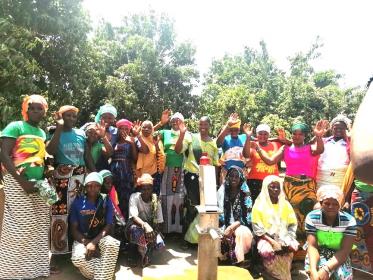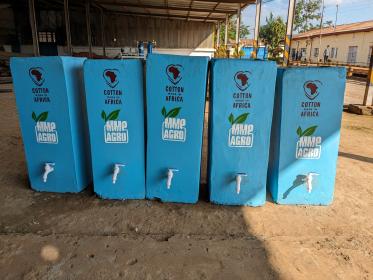GoodTextiles and CmiA: Community project for drinking water
For the third time, the GoodTextiles Foundation is realising a WASH community project together with Cotton made in Africa (CmiA). In cooperation with the CmiA-verified cotton company Sofitex, hand-operated pumps were installed in two villages in Burkina Faso/Africa to improve the drinking water supply. The three partners have also trained the villagers in the use of water, particularly with regard to disease prevention, hygiene and healthcare.
For the people in the villages of Sidi and Moukouma, daily life was a challenge: they had to walk between four and ten kilometres to get access to clean drinking water. They were often forced to resort to unsafe water sources such as rivers, which resulted in significant hygiene and health problems.
Following a comprehensive assessment of water scarcity at the project sites, two boreholes were drilled and hand-operated pumps installed. These are located in communal areas that are freely accessible to all and free of any private property and rights. Now the 3,000 inhabitants of both villages have unrestricted access to clean drinking water at all times - a real lifeline for the communities.
A water management committee was set up in each village. In the WASH training sessions, the participants were familiarised with the tasks and functions of the water committee. In addition, the villagers were given a better understanding of WASH practices and principles. They were also taught how to promote hygiene at the water points to ensure water quality. Finally, they were given the necessary maintenance tools for their work.
A total of 115 committed people, including 61 men and 54 women, took part in the training courses. They will now act as multipliers for WASH initiatives, water, sanitation and hygiene measures in their communities and pass on their knowledge. Each committee also received a toolkit for the maintenance of boreholes - so that this project is not just short-term help, but a sustainable improvement in living conditions.
The GoodTextiles Foundation is supporting the project with around €17,000.00.
GoodTextiles Stiftung







